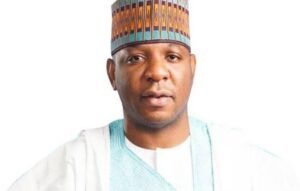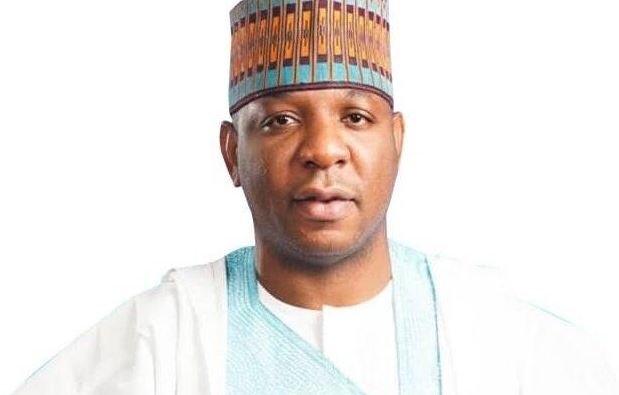The Ministry of Mines and Steel Development is a Nigerian government agency that oversees the country’s mining industry. It’s responsible for creating policies, managing mining operations, and making sure that mining activities are done safely and responsibly. The ministry also helps to promote the development of the mining sector, which is important for Nigeria’s economy.
READ ALSO: List Of Ministers Of Finance And Coordinating Minister Of Economy In Nigeria
List Of Ministers Of Steel Developments In Nigeria From 2006 Till Date
| No | Name | Term In Office |
|---|---|---|
| 1 | Leslye Obiora | 2006 - 2007 |
| 2 | Sarafa A. Tunji Ishola | July 2007 - October 2008 |
| 3 | Diezani Allison-Madueke | December 2008 - 17 March 2010 |
| 4 | Musa Mohammed Sada | 6 April 2010 - 29 May 2015 |
| 5 | Kayode Fayemi | 11 November 2015 - 30 May 2018 |
| 6 | Abubakar Bawa Bwari | 30 May 2018 - 28 May 2019 |
| 7 | Olamilekan Adegbite | 21 August 2019 - 29 May 2023 |
| 8 | Shuaibu Audu | 21 August 2023 - present |
READ ALSO: List Of Ministers Of Federal Capital Territory In Nigeria (1975-Present)
What Are The Agencies Under The Ministry Of Mines And Steel Development?
Here are the agencies under the Ministry of Mines, and Steel Development In Nigeria:
1. Nigeria Mining Cadastre Office (NMCO)
The NMCO is responsible for the administration and management of mineral titles. It handles the process of granting exploration licenses, mining leases, and permits. NMCO operates transparently, following a “first come, first served” principle.
If you’re looking to apply for a mining license, this is where you start. Their process provides that applications for permits are processed within 30 working days, while mining leases take around 45 days.
2. Geological Survey of Nigeria (GSN)
GSN conducting geological research and mapping the mineral resources in Nigeria. They identify mineral-rich areas and provide data that helps determine the feasibility of mining operations.
If you’re in the mining business, you’ll rely on the GSN’s data to find out where valuable minerals are located and whether they are viable for extraction.
3. Mines Inspectorate
This agency makes sure that mining activities comply with safety and environmental regulations. They regularly inspect mining sites to ensure operators follow the rules regarding worker safety and environmental protection. So, If you’re involved in mining, the Mines Inspectorate will audit your site to make sure operations are running safely and responsibly.
4. Artisanal and Small-Scale Mining (ASM)
ASM supports small-scale miners, many of whom operate informally. The initiative provides access to training, financing, and technical support. ASM’s goal is to formalize these smaller operations to boost productivity while ensuring you adopt environmentally sustainable practices.
5. Mining Environment Management
This department is responsible for managing the environmental impact of mining. They develop policies and guidelines to reduce harm to the ecosystem caused by mining activities.
READ ALSO: List Of Ministers Of Aviation And Aerospace Development In Nigeria
Who Is The New Minister Of Mines And Steel Development In Nigeria?

Shuaibu Abubakar Audu is Nigeria’s new Minister of Mines and Steel Development. He took office on August 21, 2023, after being appointed by President Bola Tinubu. Audu is a politician with a background in investment banking and corporate finance.
He has over 20 years of experience in banking and asset management, making him well-suited for the leadership role in a sector as important as steel development.
Born on November 6, 1980, in Lokoja, Kogi State, Audu is the son of the late Abubakar Audu, a former governor of Kogi State. His education began in the UK, where he earned a Bachelor’s Degree in Business Economics from the University of Leicester in 2001.
He went on to further his studies at Henley Business School, University of Reading, earning a Master’s Degree in International Securities, Investment, and Banking. In 2013, he completed his MBA at Oxford University, where he was a member of St Hugh’s College.
Before joining the government, Audu worked in top financial institutions like Stanbic IBTC, where he helped build the largest Pension Fund Administrator (PFA) in Nigeria.
His leadership extended to the Asset Management Subsidiary, and he worked as an Executive Director. His international experience includes working with banks like Credit Suisse and the Bank of New York Mellon, giving him a broad perspective on global financial markets.
Though his professional background was primarily in banking, Audu decided to join politics in 2023. He participated in the All Progressives Congress (APC) governorship primary in Kogi State but was later chosen to serve as Minister.
Audu’s expertise in finance is expected to help boost Nigeria’s mining and steel sectors, both critical for economic growth and development. He will likely focus on modernizing and expanding the industry, aligning it with global standards.

